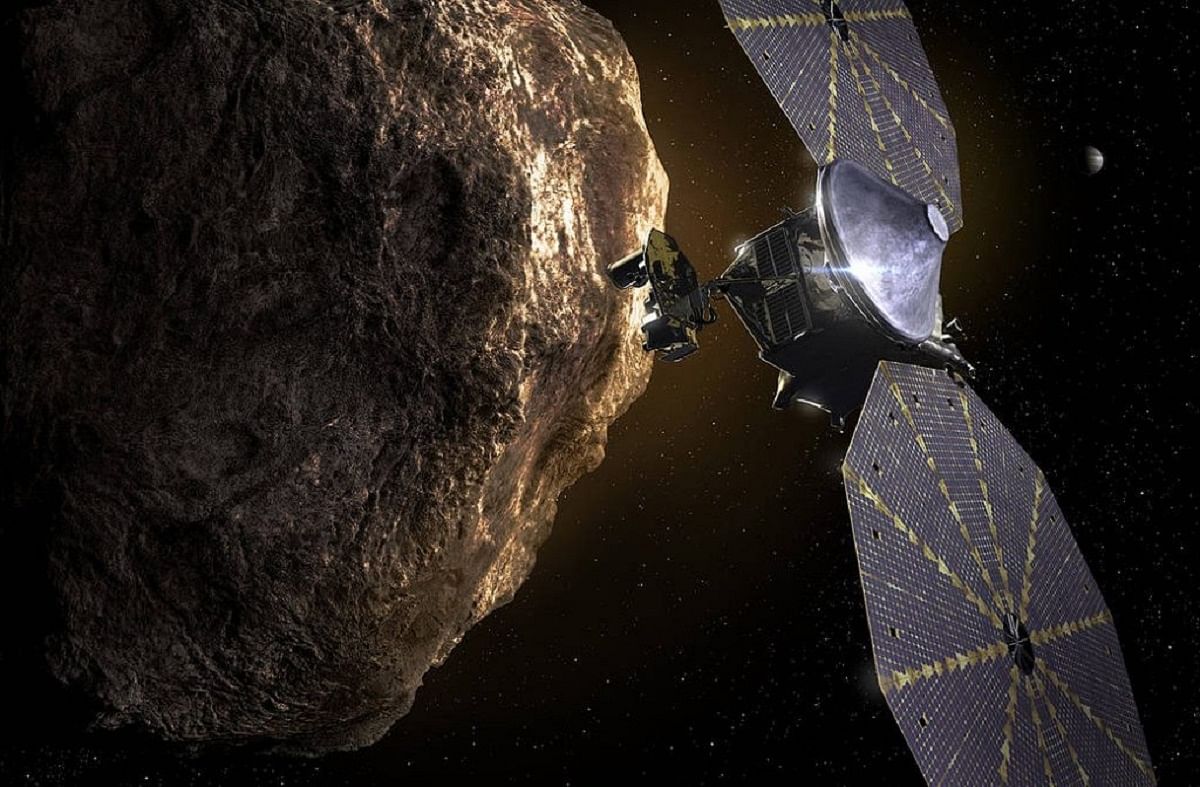Lucy spacecraft has encountered some problems. It has experienced issues with its solar panel. According to NASA, one of the solar panels has suffered a glitch. The probe was launched on October 16. The probe’s objective is to study distant asteroids. Besides, it will seek to look for data related to the origin of the solar system. It is NASA’s first-ever mission to explore distant asteroids. The space agency said that the spacecraft’s 24-foot-wide solar panels probably are not working as planned. It said that the probe has two solar arrays. Both have been deployed. One among them may not be fully latched. It, however, is assured that the mission is safe and in a healthy condition.
The Lucy asteroid spacecraft is on a 12-year mission. NASA said that the Lucy team is analyzing data. The team is determining the problem. The team will come up with the next steps required to be taken accordingly to fix the glitch. Although there is no immediate threat to the mission, achieving the full deployment of the spacecraft’s solar array is crucial to getting desired results. The agency added that all the other systems are stable and working fine. The solar arrays can generate power. They are also charging the spacecraft’s battery. NASA said that Lucy in its present situation can continue to operate. There is no threat to the spacecraft’s system and that the mission is safe.
NASA said that solar panels are a crucial part of Lucy. Scientists are hopeful about getting the first-ever close-up look at asteroids through Lucy’s eyes. The probe will provide views of Trojans’ asteroids. These asteroids can help in answering mysteries surrounding the solar system. The path of Trojans is the same as Jupiter. The spacecraft is carrying remote sensing instruments. It also has navigation cameras. It will study Trojan asteroids’ shapes and sizes. These asteroids are said to be the bits and pieces of the early solar system. They are small bodies. They hold vital clues related to the evolution of the solar system.
